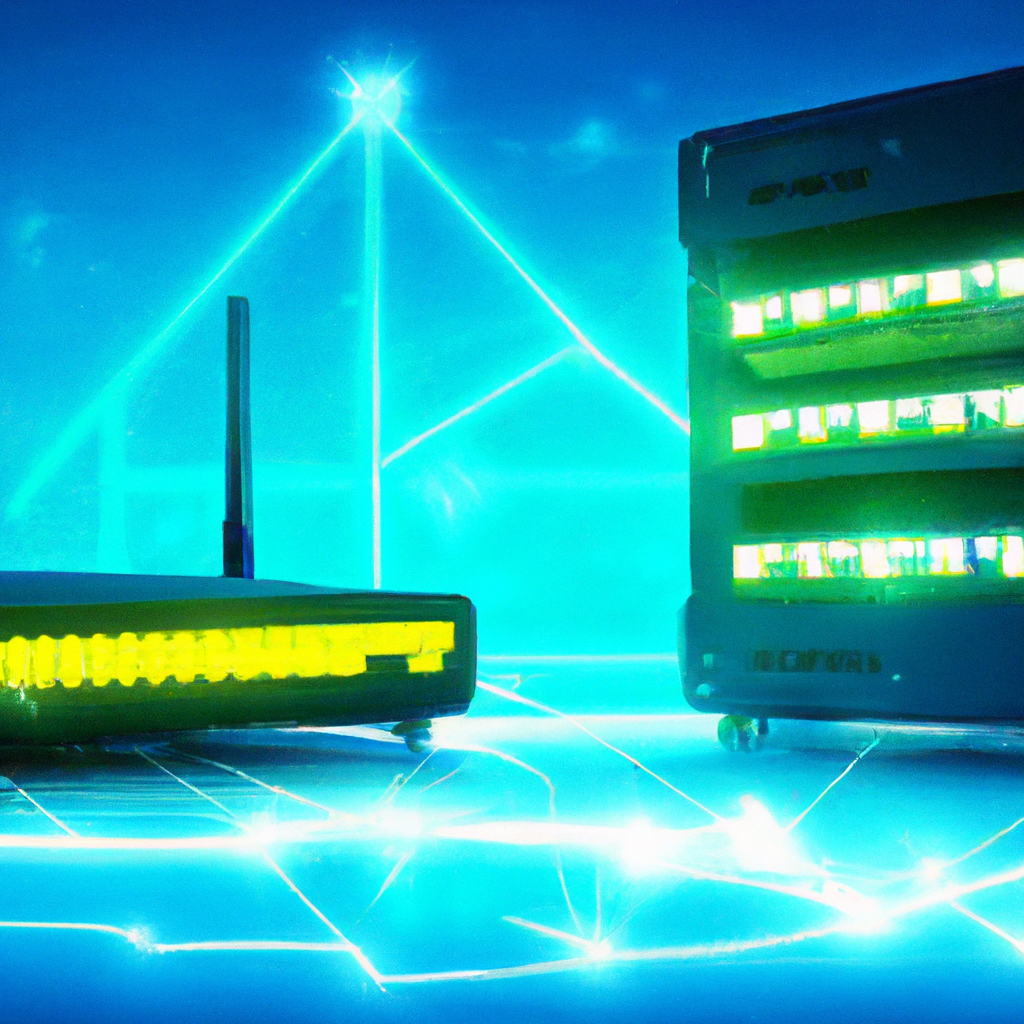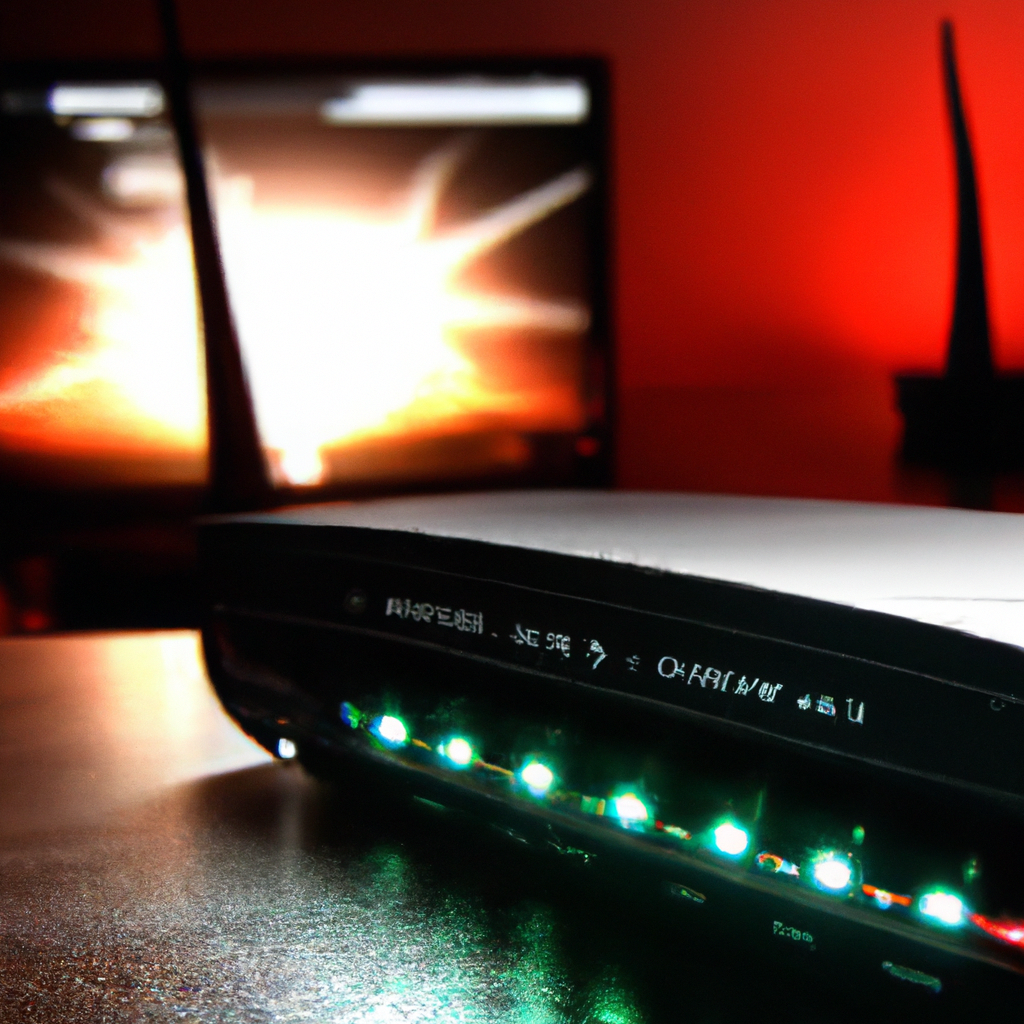How Do I Choose A Router For Gaming? 9 Simple Top Things to Know
Are you tired of experiencing lag and connection issues while gaming? Look no further, as we have the answer to your problem – choosing the right router for gaming! Whether you are a casual gamer or a dedicated esports enthusiast, finding the perfect router can make all the difference in your gaming experience. In this article, we will explore the key factors to consider and answer the question, “How Do I Choose A Router For Gaming?”
Choosing the right router for gaming is crucial to ensure a smooth and lag-free online gaming experience. With so many options available in the market, it can be overwhelming to decide which one is the best fit for your gaming needs. In this comprehensive guide, we will walk you through the factors you should consider when selecting a gaming router, including internet speed, wired vs. wireless, dual-band vs. tri-band, quality of service (QoS), processor and RAM, range and coverage, security features, brand reputation, price, and gaming-specific features. By the end of this article, you will have a clear understanding of what to look for in a gaming router that will elevate your gaming experience to the next level.
Internet Speed
The first factor to consider when choosing a gaming router is your internet speed. Internet speed, commonly referred to as bandwidth, determines how much data can be transmitted and received by your router within a specific timeframe. To understand your required internet speed for gaming, you need to consider two main aspects: download speed and upload speed.
Download speed is crucial for gaming as it determines how quickly you can receive data from the game server, such as game updates or new content. A higher download speed ensures a faster and smoother gaming experience, especially if you play online multiplayer games with a large player base.
Upload speed, on the other hand, is essential for transmitting your actions and commands to the game server. It affects your ability to communicate with other players in real-time and ensures a lag-free gaming experience. While upload speed is typically lower than download speed, it is still important to have a decent upload speed for gaming.
To determine your required internet speed for gaming, you can consult your internet service provider (ISP) for their recommended speeds or use online bandwidth calculators specifically designed for gamers. Keep in mind that different games may have different requirements, so it’s a good idea to ensure you have a reliable and fast internet connection.
Wired vs. Wireless
When it comes to gaming, having a stable and low-latency connection is crucial. This is where the choice between wired and wireless connections comes into play.
A wired connection, typically using an Ethernet cable, offers the most stable and fastest connection for gaming. It provides a direct and dedicated link between your gaming device and the router, resulting in lower latency and minimal packet loss. Additionally, a wired connection is not susceptible to interference from other devices or obstacles in your home.
On the other hand, a wireless connection allows for greater flexibility and mobility. It eliminates the need for cables, allowing you to connect to the router from any location within its coverage range. However, wireless connections are more prone to signal degradation, interference from other devices, and lower connection speeds compared to wired connections.
When choosing between wired and wireless connections for gaming, it ultimately depends on your specific setup and preferences. If you have the option to use a wired connection, it is highly recommended for the best gaming experience. However, if a wired connection is not feasible or practical, a reliable wireless connection can still provide a satisfactory gaming experience.

Dual-Band vs. Tri-Band
Dual-band and tri-band routers offer different options for transmitting wireless signals, allowing you to choose the best frequency band for your gaming needs.
Frequency Bands
Dual-band routers operate on two frequency bands: 2.4GHz and 5GHz. The 2.4GHz band offers longer range but is more susceptible to interference from other devices, such as cordless phones or microwaves. On the other hand, the 5GHz band provides faster speeds and is less congested, resulting in a more stable and reliable connection.
Tri-band routers, as the name suggests, operate on three frequency bands: one 2.4GHz band and two 5GHz bands. This additional 5GHz band provides extra capacity and reduces congestion, especially in crowded areas with multiple devices competing for bandwidth.
Interference Reduction
One of the key advantages of dual-band and tri-band routers is their ability to reduce interference. By choosing the less crowded frequency band, you can minimize signal degradation and maintain a stable connection during intense gaming sessions. Tri-band routers, with their additional 5GHz band, offer even more flexibility in selecting the optimal band with minimal interference.
Device Compatibility
When selecting a gaming router, it is important to consider the compatibility of your gaming devices with the frequency bands offered by the router. Most modern gaming devices support both 2.4GHz and 5GHz bands, but it’s always a good idea to check the specifications of your devices to ensure compatibility.
If you have older devices that only support the 2.4GHz band, a dual-band router would be sufficient. However, if you have multiple high-performance gaming devices or plan to use your router for other bandwidth-intensive activities, such as streaming or downloading large files, a tri-band router may be a better choice to ensure optimal performance.
Quality of Service (QoS)
Quality of Service (QoS) is a feature that allows you to prioritize certain types of network traffic over others. In the context of gaming, this means giving higher priority to gaming traffic to ensure a smooth and responsive gaming experience, even when other devices on your network are using bandwidth.
Traffic Prioritization
QoS enables you to prioritize gaming traffic by allocating more bandwidth and network resources to it. This ensures that gaming packets are given higher priority over other types of data, such as streaming videos or file downloads. By prioritizing gaming traffic, you can minimize latency and packet loss, resulting in a more stable and lag-free gaming experience.
Packet Streaming
Another important feature provided by QoS is packet streaming. This allows your router to prioritize individual packets within a data stream, ensuring that time-sensitive gaming data, such as your actions and commands, are delivered with minimal delay. By giving priority to gaming packets, you can reduce latency and improve overall gaming performance.
Bandwidth Allocation
QoS also allows you to allocate specific amounts of bandwidth to different devices or applications on your network. This means you can set a higher bandwidth allocation for your gaming device, ensuring it receives the necessary resources for a smooth gaming experience. By effectively managing your network’s bandwidth, you can prevent one device or application from hogging all the bandwidth, which could negatively impact your gaming performance.

Processor and RAM
The processor and RAM of your gaming router play a crucial role in its overall performance and handling of network traffic.
Importance of Processor
The processor, also known as the central processing unit (CPU), is responsible for executing instructions and calculations necessary for the router’s operation. A powerful processor ensures that the router can handle multiple devices, network traffic, and processing-intensive tasks simultaneously without experiencing any slowdowns or bottlenecks.
For gaming routers, look for routers with a processor specifically designed to handle gaming traffic and provide low-latency performance. Advanced processors, such as those with dual or quad cores, are ideal for handling the demands of gaming and other bandwidth-intensive activities.
RAM Requirements
Random Access Memory (RAM) is a temporary storage space used by the router to hold data that is actively being processed or accessed. When it comes to gaming, having an adequate amount of RAM is essential for smooth gameplay and quick access to data.
For gaming routers, look for routers with a minimum of 128MB RAM or higher. This will ensure that the router can efficiently handle the demands of gaming, especially in scenarios where multiple devices are connected and actively using the network.
Range and Coverage
The range and coverage of a gaming router determine how far the wireless signal can reach and the strength of the signal throughout your space.
Consider the Size of Your Space
When choosing a gaming router, consider the size of the space you intend to cover with the wireless signal. If you have a small apartment or a single-room gaming setup, a router with a shorter range may be sufficient. However, if you have a larger house or multiple floors, you will likely need a router with a longer range to ensure consistent and reliable coverage in all areas.
Antenna Design and Placement
The design and placement of the router’s antennas also play a crucial role in range and coverage. Routers with external high-gain antennas or adjustable antennas tend to offer better signal strength and coverage compared to routers with internal antennas. Additionally, the placement of the router itself can greatly impact the signal quality and coverage. Ideally, the router should be placed in a central location, away from obstructions such as walls or large furniture, to maximize signal propagation.
Mesh Networking
Mesh networking is becoming increasingly popular, especially for larger spaces or homes with multiple devices. A mesh network consists of multiple interconnected routers or nodes that work together to extend the wireless coverage throughout your space. This allows for seamless roaming and eliminates dead spots, ensuring a consistent and reliable wireless connection for gaming.
Consider whether mesh networking is a feature you require in your gaming router, as it can significantly enhance the range and coverage compared to a single router setup.

Security Features
In the world of online gaming, security is of utmost importance to protect your personal information, prevent unauthorized access, and ensure a safe gaming environment. When choosing a gaming router, consider the following security features:
WPA2/WPA3 Encryption
Look for routers that support the latest Wi-Fi security standards, such as Wi-Fi Protected Access 2 (WPA2) and WPA3. These encryption standards provide robust security protocols to safeguard your wireless network and prevent unauthorized access. WPA3 offers enhanced security features over its predecessor, so if your devices support WPA3, it is recommended to choose a router that supports it as well.
Firewall Protection
A built-in firewall is an essential security feature that protects your network from external threats and malicious activities. It acts as a barrier between your network and the internet, monitoring incoming and outgoing traffic and blocking any suspicious or potentially harmful connections.
Guest Network Support
If you frequently have guests or friends over for gaming sessions, having a dedicated guest network can enhance the security of your main network. A guest network provides a separate and isolated Wi-Fi network for your guests, preventing them from accessing your personal devices and files.
Brand Reputation
When investing in a gaming router, it is important to consider the reputation and reliability of the brand. Look for established and reputable brands that have a track record of delivering quality and innovative products. Research customer reviews, ratings, and feedback to gauge the overall satisfaction and performance of the routers offered by the brand. Choosing a reputable brand not only ensures a higher quality product but also provides better customer support and warranty options.

How Do I Choose A Router For Gaming: Price
It’s vital to recognize that the range of pricing for gaming routers is wide, extending from budget-friendly options under $100 to high-end routers that can cost upwards of $500 or more. It’s easy to assume that the more expensive routers automatically offer a superior gaming experience, but that’s not always the case. Costlier routers often come with additional features and capabilities, such as multiple bands, advanced QoS settings, and more robust security measures; however, these extra features may not be crucial for every gamer.
Budget is undeniably a crucial factor, but it should not be the only deciding element. Take a strategic approach by listing out the features that are essential for your gaming needs—speed, latency, security, the number of devices you’ll connect, etc. Once you have a clear understanding of your requirements, it becomes easier to allocate your budget effectively. You might discover that a mid-range router satisfies all your needs without requiring you to splurge on a high-end model.
It’s also important to remember that a cheaper router today could mean more expense in the long run. For instance, a router with outdated technology might require replacement sooner than a slightly more expensive model that is more future-proof. Consider the longevity and future compatibility of the router as you ponder on your budget.
Sometimes, seasonal sales and discounts can also allow you to acquire a higher-end router for a price within your budget. Therefore, keep an eye out for deals and promotional offers that could let you maximize what you get for your money. You might be able to nab a router with better features at a discounted price during holiday sales, Black Friday, or Cyber Monday events.
Lastly, don’t forget to factor in ancillary costs. Some routers may require a subscription for advanced features or firmware updates. Make sure you account for all potential future expenses when setting your budget.
In essence, the key to choosing the right gaming router within your budget involves a mix of practicality and foresight. Price is certainly important, but it’s the value you get for that price—measured in performance, features, and future-proofing—that truly counts. By taking a balanced approach that considers both immediate needs and long-term viability, you can make an informed choice that offers both quality and affordability.
Gaming-Specific Features
Finally, consider gaming-specific features that can further enhance your gaming experience and provide a competitive edge. Some of these features include:
- Low Latency Mode: This feature optimizes the router’s settings to minimize latency and provide a faster response time for gaming.
- Gaming Traffic Prioritization: Similar to QoS, gaming traffic prioritization ensures that gaming packets are given the highest priority, resulting in a smoother gaming experience.
- Port Forwarding: Port forwarding allows you to open specific ports on your router, enabling smoother and more reliable connections for online gaming.
- MU-MIMO Technology: MU-MIMO (Multi-User, Multiple-Input, Multiple-Output) technology allows the router to communicate with multiple devices simultaneously, reducing latency and improving overall performance.
- Beamforming: Beamforming technology focuses the wireless signal toward your gaming device, improving signal strength and coverage for a more reliable connection.
How Do I Choose A Router For Gaming: In A Nutshell
In summary, choosing the right router for gaming is a critical step for anyone looking to optimize their online gaming experience. With the plethora of options available, the selection can seem overwhelming. However, focusing on a few key features—such as speed, number of bands, QoS, and security—can simplify the decision-making process.
Speed matters. In an online game, latency can be the difference between victory and defeat. Opt for a router with high data throughput to minimize lag and ensure fluid gameplay. Multi-band functionality, offering both 2.4 GHz and 5 GHz bands, helps to segregate traffic, providing a dedicated highway for your gaming needs.
Quality of Service (QoS) should not be ignored. This feature lets you prioritize gaming traffic over other types of data, ensuring that your game doesn’t lag when someone else in the house is streaming or downloading large files. It’s a feature that could save your game and your sanity.
Security is another cornerstone. A robust firewall and reliable WPA3 encryption protect you from potential cyber threats that could compromise not just your gaming, but also your personal data. Choose a router with a solid security protocol to keep intruders at bay.
Ease of use and future-proofing are the icing on the cake. An intuitive interface allows for simple setup and adjustments, while advanced features like MU-MIMO and compatibility with the latest Wi-Fi standards prepare you for future technology changes.
So, as you shop for a gaming router, remember that you’re not just buying a piece of hardware. You’re investing in an experience—a smooth, immersive, and secure gaming experience to be precise. Make the choice that will elevate your gaming to the next level.





